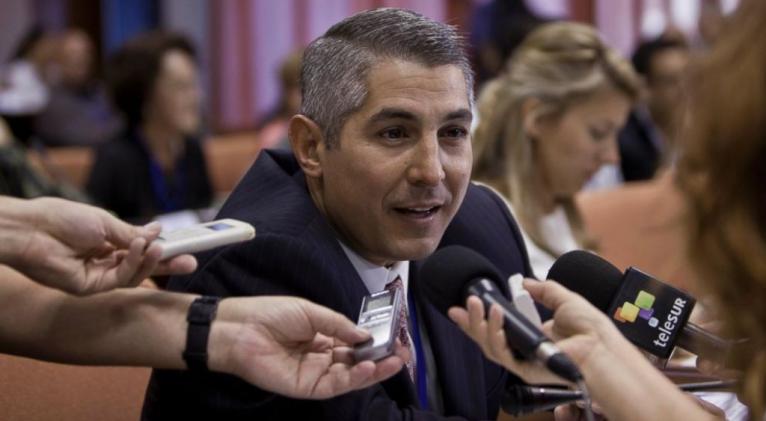US Sends Health Official to Cuban Ebola Meeting
especiales

U.S. and Cuban health officials sat together in Havana on Wednesday to discuss Latin America's response to Ebola, the most concrete sign so far of the nations' desire to cooperate against the epidemic despite decades of tense relations.
A mid-level official of the Centers for Disease Control and Prevention was a surprise participant at a two-day meeting called by ALBA, a forum of left-leaning Latin countries founded by Cuba and Venezuela as a counterweight to U.S. influence. The meeting is part of a Cuban anti-Ebola effort that included sending at least 256 doctors and nurses to West Africa this month, a commitment that has inspired rare U.S. praise for the communist island.
The dispatch of Cuban doctors was followed by mutual expressions of desire for Havana and Washington to work together against Ebola, and the top U.S. diplomat in Cuba attended a briefing on Ebola for Havana's diplomatic corps last week by Cuba's foreign and health ministers, but there was no public display of cooperation until Wednesday.
"This is a global emergency and we all have to work together and cooperate," Nelson Arboleda, the Guatemala-based director of the CDC's Central American Regional Office, told reporters before the meeting. "We'll make every effort to ensure the quick diagnosis of patients to break the cycle of transmission."
He said the meeting in Cuba would discuss planning for training medics "in order to ensure an appropriate response to the possible introduction of the Ebola virus in our region."
The CDC said that it had contacted the State Department about U.S. representation at the meeting and dispatched Arboleda, who oversees a team of 25 people and usually represents the CDC in activities in the region.
The U.S. maintains a trade embargo on Cuba and the two countries do not have full diplomatic relations, but they have quietly cooperated for years on subjects like public health, immigration and environmental protection. The CDC is one of the U.S. agencies with a record of sending representatives to Cuba and hosting Cuban medical officials in the United States.
The World Health Organization says Cuba's dispatch of medical workers is the largest contribution by a single government, although there may be more doctors of other nationalities who are sent by non-governmental organizations.
Secretary of State John Kerry and UN Ambassador Samantha Power both lauded Cuba for the contribution, contributing to hopes among advocates of closer ties with Cuba that the Obama administration may be working to prepare the ground for an improvement in relations after next week's U.S. midterm elections.
Cuban Health Minister Roberto Morales Ojeda said that more than 200 delegates had been sent to the meeting by 32 nations, including Mexico, Canada, Brazil and Panama, which are not members of the relatively small ALBA bloc.
"In the context of so much discussion, public and private, about opportunities for the U.S. to do things in its own interest that involve Cuba directly, there's an irreproachable logic," about the U.S. attending the meeting, said Julia Sweig, a Cuba expert at Council on Foreign Relations. "I think it demonstrates a degree of pragmatism and seriousness that is appropriate to the crisis at hand."













Add new comment